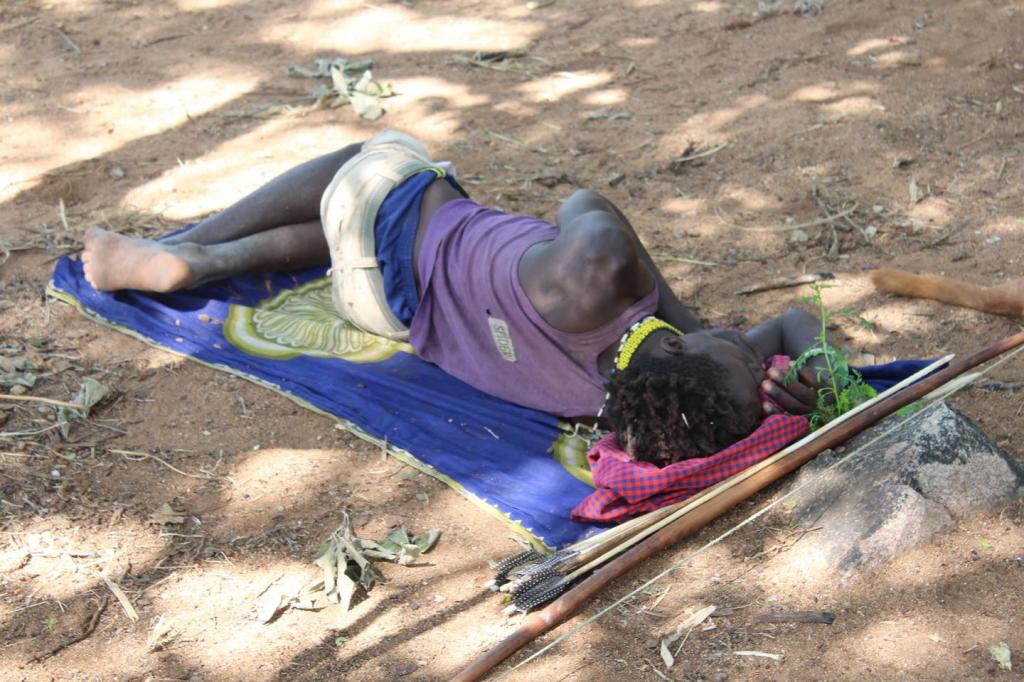
A Hadza man sleeps on the ground in northern Tanzania.
(Image by David Samson)
An anthropological study of modern hunter-gatherers in Tanzania suggests that the difference in sleep schedules may be an age-old survival mechanism. The team observed daily lives of a modern hunter-gatherer community of the Hadza people in Northern Tanzania. After a day of procuring food, the Hadza, the young and old alike, gather to sleep in one place. Different sleep schedules ensure that there’s always one person awake to stand guard and ward off any predators, researchers say. The misaligned sleep schedules were a byproduct of changing sleep patterns common with age: participants in their 50s and 60s generally went to bed earlier and woke up earlier than their younger relatives. Researchers call their theory the “poorly sleeping grandparent hypothesis”: that living and sleeping in mixed-age groups of people with different sleep habits helped our ancestors keep a watchful eye through the night.
Authors:
David R. Samson, Alyssa N. Crittenden, Ibrahim A. Mabulla, Audax Z. P. Mabulla, Charles L. Nunn
Corresponding author:
David Samson, Department of Anthropology, University of Toronto, Mississauga, ON, Email: david.samson@gmail.com
Original paper published in Proceedings of Royal Society B: Biological Sciences on July 11, 2017.



